CTV NATIONAL NEWS: THE LIFA AND LEGACY OF ACTOR CARL WEATHERS
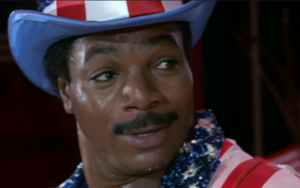 I join the CTV National News in a report to talk about the life and legacy of the late Carl Weathers, who has passed away at age 76.
I join the CTV National News in a report to talk about the life and legacy of the late Carl Weathers, who has passed away at age 76.
Watch the whole thing HERE!
 I join the CTV National News in a report to talk about the life and legacy of the late Carl Weathers, who has passed away at age 76.
I join the CTV National News in a report to talk about the life and legacy of the late Carl Weathers, who has passed away at age 76.
Watch the whole thing HERE!
 I appear on “CTV News at 6” with anchor Andria Case to talk about the best movies and television to watch this weekend. This week I have a look at three life stories, the doomed love story “Priscilla,” now playing in theatres, and two Netflix movies, the Stallone doc “Sly” and the bio “NYAD,” about marathon swimmer Diana Nyad.
I appear on “CTV News at 6” with anchor Andria Case to talk about the best movies and television to watch this weekend. This week I have a look at three life stories, the doomed love story “Priscilla,” now playing in theatres, and two Netflix movies, the Stallone doc “Sly” and the bio “NYAD,” about marathon swimmer Diana Nyad.
Watch the whole thing HERE! (Starts at 36:56)
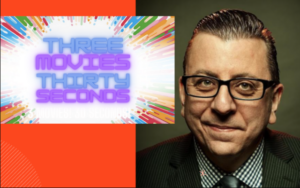 Fast reviews for busy people! Watch as I review three movies in less time than it takes to wind a clock! Have a look as I race against the clock to tell you about Paul Giamatti in “The Holdovers,” the biopic “Priscilla” and the documentary “Sly.”
Fast reviews for busy people! Watch as I review three movies in less time than it takes to wind a clock! Have a look as I race against the clock to tell you about Paul Giamatti in “The Holdovers,” the biopic “Priscilla” and the documentary “Sly.”
Watch the whole thing HERE!
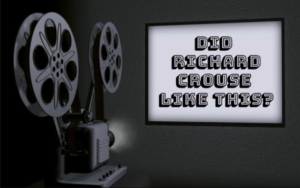 I sit in with NewsTalk 1010 host Jim Richards on the coast-to-coast-to-coast late night “NewsTalk Tonight” to play the game “Did Richard Crouse Like This?” This week we talk about Paul Giamatti in “The Holdovers,” the biopic “Priscilla,” and the documentary “Sly.”
I sit in with NewsTalk 1010 host Jim Richards on the coast-to-coast-to-coast late night “NewsTalk Tonight” to play the game “Did Richard Crouse Like This?” This week we talk about Paul Giamatti in “The Holdovers,” the biopic “Priscilla,” and the documentary “Sly.”
Listen to the whole thing HERE!
 I joined CP24 to have a look at new movies coming to VOD, streaming services and theatres. Today we talk about Paul Giamatti in “The Holdovers,” the biopic “Priscilla,” the sports drama “NYAD” and the documentary “Sly.”
I joined CP24 to have a look at new movies coming to VOD, streaming services and theatres. Today we talk about Paul Giamatti in “The Holdovers,” the biopic “Priscilla,” the sports drama “NYAD” and the documentary “Sly.”
Watch the whole thing HERE!
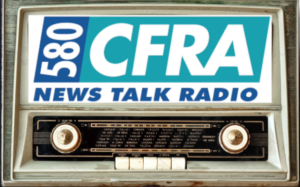 I sit in on the CFRA Ottawa morning show to talk the new movies coming to theatres including Paul Giamatti in “The Holdovers,” the biopic “Priscilla,” the sports drama “NYAD” and the documentary “Sly.”
I sit in on the CFRA Ottawa morning show to talk the new movies coming to theatres including Paul Giamatti in “The Holdovers,” the biopic “Priscilla,” the sports drama “NYAD” and the documentary “Sly.”
Listen to the whole thing HERE!
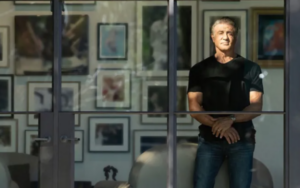 “Sly,” a new, reverent Netflix documentary directed by Thom Zimny, is an authorized look at the life of Sylvester Stallone, through the lens of his two best known characters, resilient boxer Rocky Balboa and blunt-force object John Rambo.
“Sly,” a new, reverent Netflix documentary directed by Thom Zimny, is an authorized look at the life of Sylvester Stallone, through the lens of his two best known characters, resilient boxer Rocky Balboa and blunt-force object John Rambo.
The doc begins as Stallone announces he’s moving house, heading east to New York City from his longtime, opulent west coast home in search of a change of scenery and creative rebirth. As a lifetime of memories and memorabilia—the L.A. house has a truly shocking number of statues and figurines of Rocky and Rambo—is packed away, he reminisces about life, his movies and, in one of the film’s few surprises, his love of polo.
Direct and forthright, he turns on the charm to describe his hardscrabble beginnings in NYC’s Hell’s Kitchen with parents Frank and Jackie. He spends a great deal of time on his father, a complicated, abusive man who later in life became jealous of his son’s success, but, strangely, almost no time on his mother who was a celebrity in the 1980s.
That’s just one of many omissions. There’s no mention of his softcore movie “The Party at Kitty and Stud’s,” for instance, but “Sly” is not for completists. As Stallone hopscotches through his filmography, focusing on his three successful franchises, “Rocky,” “Rambo” and “The Expendables,” with little or no mention of the other 75 or so films that fill out his resume, it’s clear he has a more high-minded philosophical job to do.
The Oscar-nominated actor-writer-director-producer attempts to find common ground between his personal story of tenacity and his best-known characters. It’s hard to deny the connection between the underdog Rocky and early Sly, or John Rambo’s survival skill set and Stallone’s ability to stay relevant in Hollywood. It’s a bit of a stretch to see how “The Expendables” fits the mold, but this is Stallone’s world and we’re just visiting.
Better than the tangential links between art and artist is a scene featuring Stallone re-listening to a decades-old interview on a battered old cassette tape. “Rocky,” he says as a young man, “is a character study.” “No, it’s not,” his contemporary self says, “it’s a love story!” It’s a nice and rare moment of self-depreciation that compares and contrasts Stallone in different eras; the heady days of early fame and the more self-reflective present-day version.
More than anything, the remarkably intimate portrait of the larger-than-life Stallone is a study in star power. As he talks about his life. usually looking directly into the camera, the elusive it-factor that made and kept him a star is self-evident. “Sly” may not offer up a lot of new material, but does put a personal and entertaining spin on the familiar stories.
 I appear on “CTV News at 6” with anchor Andria Case to talk about the best movies and television to watch this weekend. This week I have a look at “Creed III,” the ninth movie in the “Rocky” franchise, the big screen debut of DCI Luther in “Luther: the Fallen Sun” and the family drama “Juniper.”
I appear on “CTV News at 6” with anchor Andria Case to talk about the best movies and television to watch this weekend. This week I have a look at “Creed III,” the ninth movie in the “Rocky” franchise, the big screen debut of DCI Luther in “Luther: the Fallen Sun” and the family drama “Juniper.”
Watch the whole thing HERE! (Starts at 36:14)
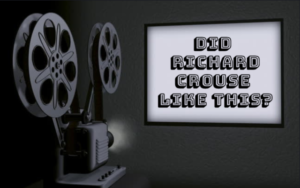 I join NewsTalk 1010 host Jim Richards on the coast-to-coast-to-coast late night “NewsTalk Tonight” to play the game “Did Richard Crouse Like This?” This week we talk about “Creed III,” the latest from the “Rocky” universe, the adventures of London copper “Luther: The Fallen Sun” and the family drama “Juniper.”
I join NewsTalk 1010 host Jim Richards on the coast-to-coast-to-coast late night “NewsTalk Tonight” to play the game “Did Richard Crouse Like This?” This week we talk about “Creed III,” the latest from the “Rocky” universe, the adventures of London copper “Luther: The Fallen Sun” and the family drama “Juniper.”
Listen to the whole thing HERE!